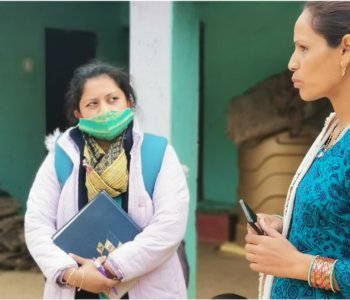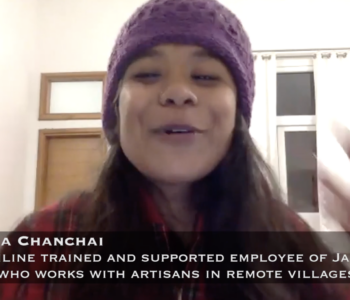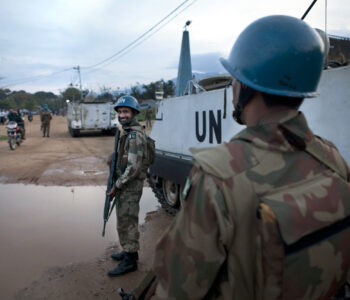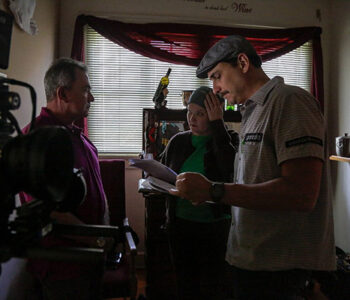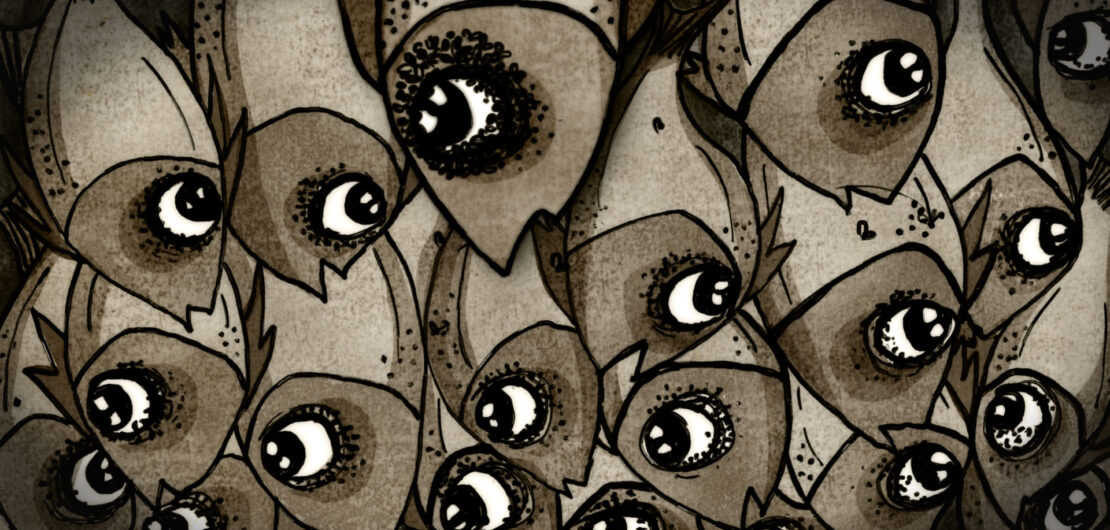
Empath Warrior
The Evolution of Abhishek Verma as an Artist-Interventionist
by Sanjeev Chatterjee
This article is based on the writer’s association with the National Award-winning (India) animator Abhishek Verma since his time at the Young India Fellowship in 2017 and on a more recent interview conducted for the purposes of this article.
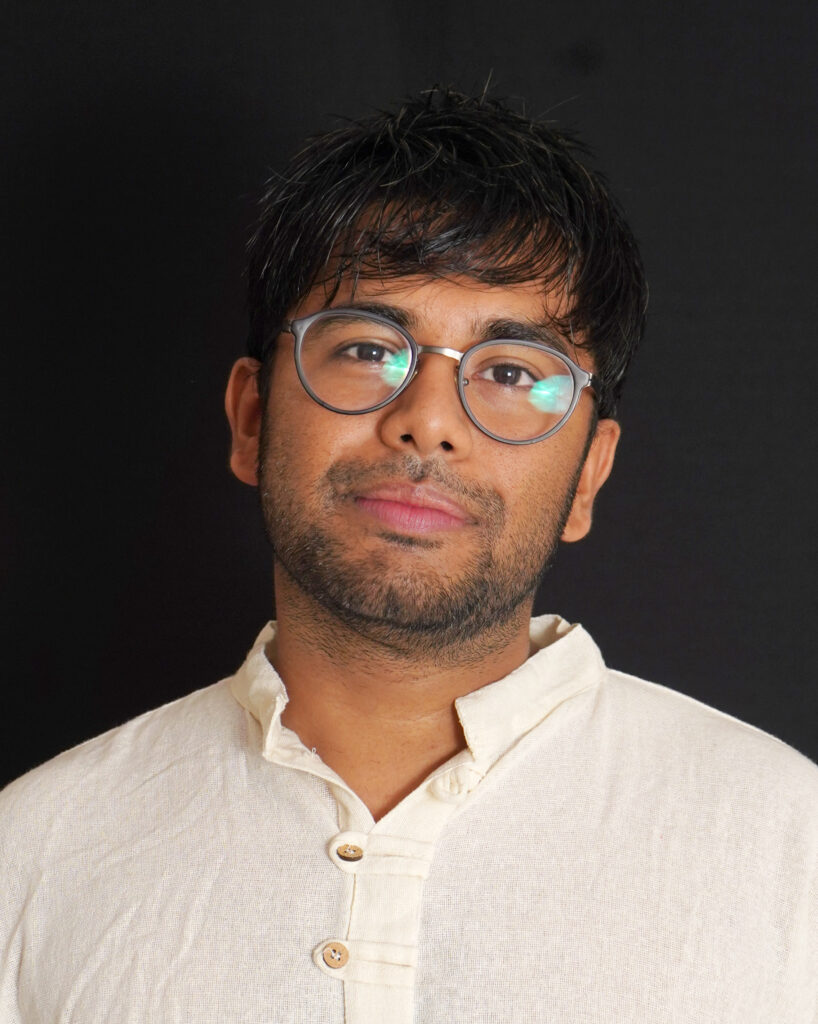
Looking at Abishek Verma’s animation films, one must wonder about their genesis. These purpose driven films consist of many thousands for hand drawn frames where it is clear that Verma’s art has reached what I like to think of as a signature point. If you have seen one of his films, you will definitely know his next just by virtue of its style.
Beginnings
Verma grew up in small town Hazaribagh, now in the state of Jharkhand, in North-Central India. Although his parents – father a bank employee and mother a Hindi school teacher – were limited in resources to support every need of a growing son, they understood the importance of education in securing the ticket to a better life. He attended the Jesuit run St. Xavier’s High School and right afterwards his father insisted he move to Ranchi, a slightly bigger town, where access to private tutors was better. In India, private tutors often specialize in tutoring students for national entrance exams for various higher education streams. They are not cheap, but as Verma explains, for kids who could not pay, some
teachers would allow them into classes for very little – say a marker or even a samosa and cup of tea. A token. Although a good student, looking back Verma recalls that his priorities were never focused on the engineering degreehis extended family expected him to complete. Even while he was in high school, the cinema bug had bitten him in a novel way. Having no cash to inculcate a movie going habit, Abhishek became an ardent radio addict. The Indian government’s national broadcast service Doordarshan would broadcast entire soundtracks of movies on weekends. Not only did this obsession introduce Abhishek to the stories of then faraway Bollywood and the stars, but he also got to know the names of people behind the scenes – directors, lyricists, composers… Occasionally, there would names like writer/director Raj Kumar Gupta from his very own Hazaribagh and actress/model Tanushree Dutta who were from nearby Jamshedpur and had made it to Bollywood. By the time Abhishek was in Ranchi he had reasons to believe he could make it too.
A milestone in Ranchi, for Abhishek, was his introduction to the movie theater. As be remembers it, it was easy to divert what little funds he had for tuition towards the 7 rupee (approximately a US dime by today’s conversion) ticket. He clearly recalls the thrill of watching the Ashutosh Gowariker directed Swades (2004) starring Shah Rukh Khan. At that point he admits he stopped going to tuitions.
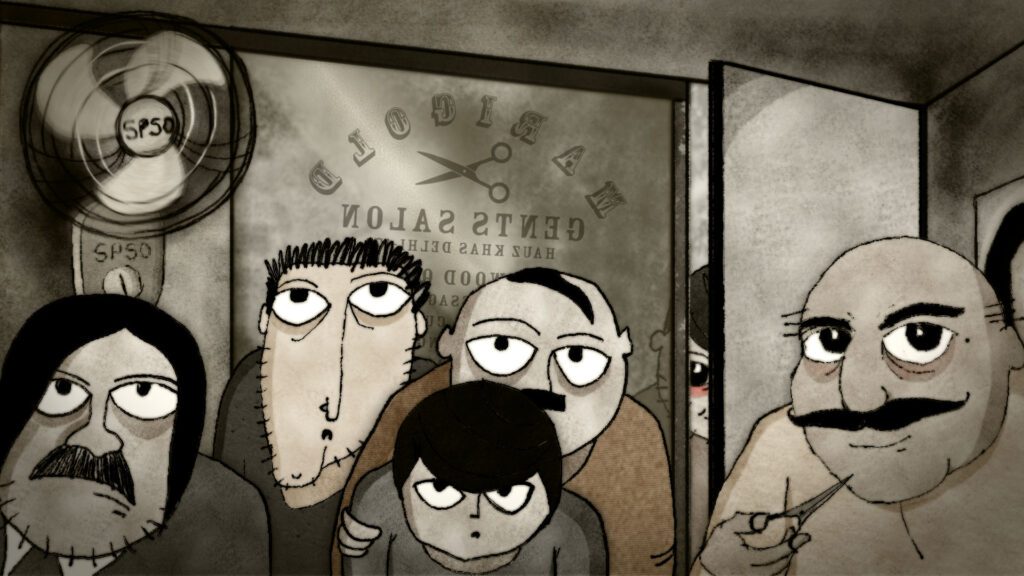
Broadening Horizons
Although his Hindi teacher mother had introduced him well to the doyens of Hindi literature such as Premchand, Ramdhari Singh Dinkar and others who wrote about oppression and exploitation of the powerless, those stories and poems remained bookish to him. They were not lived experiences. Later, a senior in college suggested he watch Vishal Bharadwaj’s adaption of Othello – Omkara (2003). This film became a curiosity. Never having read any Shakespeare, he attempted to read Othello to little avail. Realizing his English proficiency was nowhere close to competent, he began a routine to address the deficiency. He picked up the English newspaper from the hostel warden’s office every morning and began reading. He would mark all the words he did not understand and then consult a dictionary. This is how, step by methodical step, he learned to be proficient in English.
Honoring family expectations remained important however and he cleared the engineering entrance exams and in 2012 moved away to Tumkur, an industrial town outside Bangalore in South India. It was as if a whole new horizon opened up. Abhishek credits the introduction to Korean directors Wong Kar-wai and Kim Ki-duk at this time as transformative for his imagination. An introduction to “what is possible.” And if there is a particular point of transitioning from perceiving cinema as pure entertainment to purposeful filmmaking, it was probably after watching Mariana Rondon’s 2013 classic Pelo Malo (Bad Hair) – a film that confronts racism and sexism in Venezuela head on.
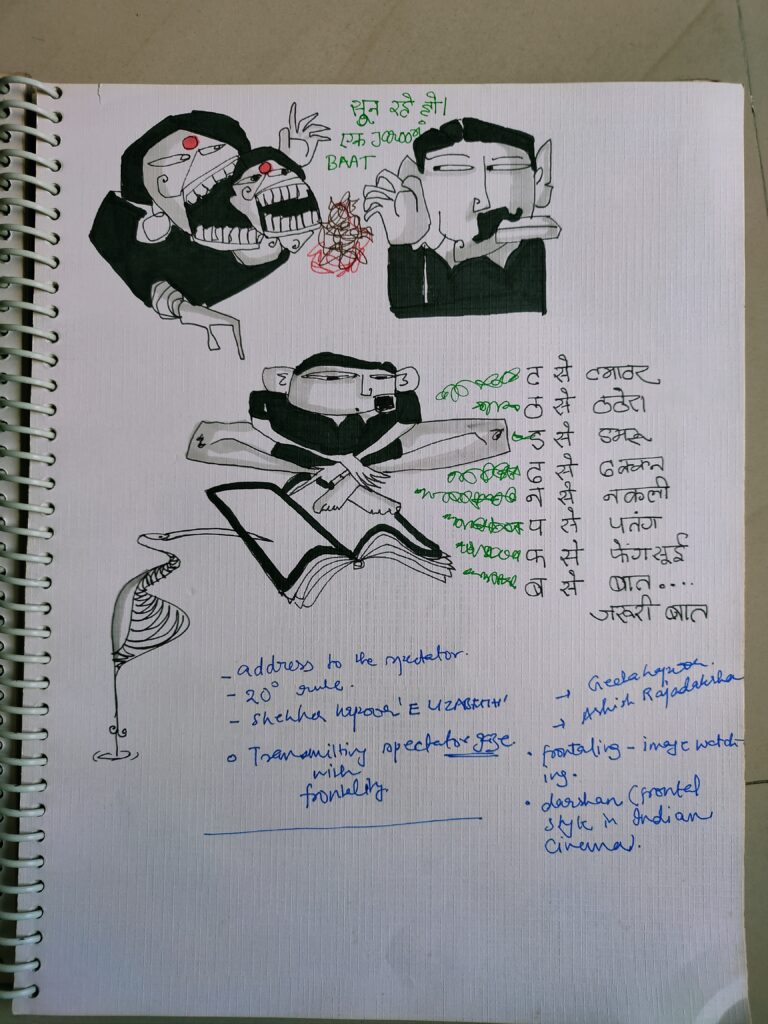
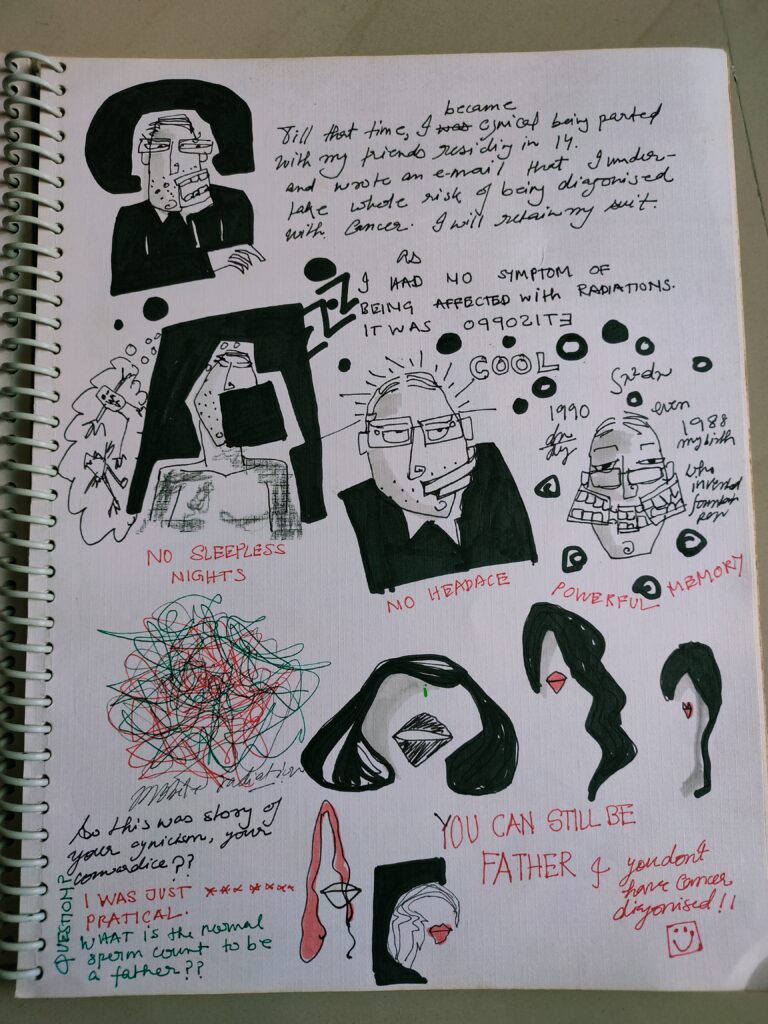
Fear and Fearlessness
The educational loan his father had taken out to pay for Abhishek’s engineering education was weighing very heavily on the family. The anxiety and fear around the inability to pay back the loan was crippling in many ways, he recalls. More than the money, the anxiety and fear severely stifled his creativity. This was the reason he did not apply to the relatively expensive National Institute of Design and instead got a full ride to attend the acclaimed Industrial Design Centre at the Indian Institute of Technology, Bombay.
Apart from leaving the burden of financial debt behind, two milestone events helped Verma climb out of fear into creative freedom. His cohort was made up of peers who came from top art institutes in India. Compared to them his drawing skills were, according to him, minimal. However, their teacher Shilpa Ranade was insistent that others pay attention to Abhishek’s work. She told him that drawings are like an individual’s handwriting and trying to copy others would destroy creativity. This helped greatly in finding confidence in himself and the work he was doing. In the other incident, he was waiting to speak to the legendary Shyam Benegal who was visiting. Benegal was talking to some people and eating ice cream. The ice cream just would not finish – it seemed an interminable length of time before Benegal’s secretary pointed out the young man waiting to speak to him. Verma was given 15 minutes to talk about whatever he wanted. He asked the filmmaker about making Welcome to Sajjanpur (2008). The story of a man who is forced to write letters for illiterate villagers to make a living. Benegal told Abhishek that the main character was not a figment of his imagination. There was actually a young man who worked in Benegal’s office who wrote letters people in his own village. When Verma asked for advice about what he should be doing Benegal advised him include what was happening around him in whatever he chose to do. If he did not do that his work would lose all purpose. This really spoke to Verma. As he puts it “…yes, I can make a Tarantino type thriller and include things happening around me,”
Animator-Filmmaker
The first film that Abhishek released was Chasni (2014) a hand-drawn 2-D animation film with spoken word poetry, based on the story of an acid attack victim Lakshmi who filed a petition with India’s supreme court to ban sale of acid to people without identification. Laxmi’s story is retold in the 2020 Meghna Gulzar directed Chhapak starring Deepika Padukone and Vikrant Massey. Verma’s film came at a time where India faced with the 2012 brutal rape and murder of Nirbhaya in Delhi (a story memorialized in 2019 by Delhi Crime on Netflix) and the publication of the end of life hand written notes by Preeti Rathi in Bombay who succumbed to the burns from an acid attack by a former neighbor in 2013.
Abhishek’s next film was occasioned by a close friend coming out to him as being gay. The incident hit Verma hard because none of the stereotypes associated to the depiction of gay people in the media applied to this 6-foot male who had been in the closer for over 20 years. This was the genesis of Maacher Jhol (2017) the story of a young man who lovingly prepares fish curry for his father and comes out as gay during the meal. Apart from the film winning awards internationally including India’s National Award and a City of Annecy Award, the 12-minute film is used widely as a resource for counseling parents of LGBTQ children. The film is now also part of film and animation curricula internationally. Many peers have borrowed the film as a tool to come out of the closet to family and friends. Personally, the most significant impact of Macher Jhol was, however, at home, Abhishek says. When he first shared the idea for the new film with his parents back in Hazaribagh they were shocked. Maybe even concerned that their son was trying to telegraph a message through his work. “I had to teach them everything” he said. After the film was out a friend was visiting and while his teacher mother was serving tea and snacks he asked Abhishek if there was a treatment or a doctor one could visit to cure homosexuality. Late that day, Abhishek’s mother asked him never to invite the friend home again. She was deeply disappointed by the fact that the young man, who was well educated, knew so little. To Verma, this change in the outlook of his ageing parents was high impact indeed.
Friends and strangers alike are curious to know if Abhiskek was driven to making Macher Jhol based on his experiences as a gay man. He says “I did not have to be an acid attack survivor to make a film about acid attacks. It does not work like that.” In filmmaking, Verma explains, the director tells the actors to live the emotions of characters, but the animator must live the emotions in order to bring them alive on screen. “You cannot draw the right expressions without acting them out yourself.”
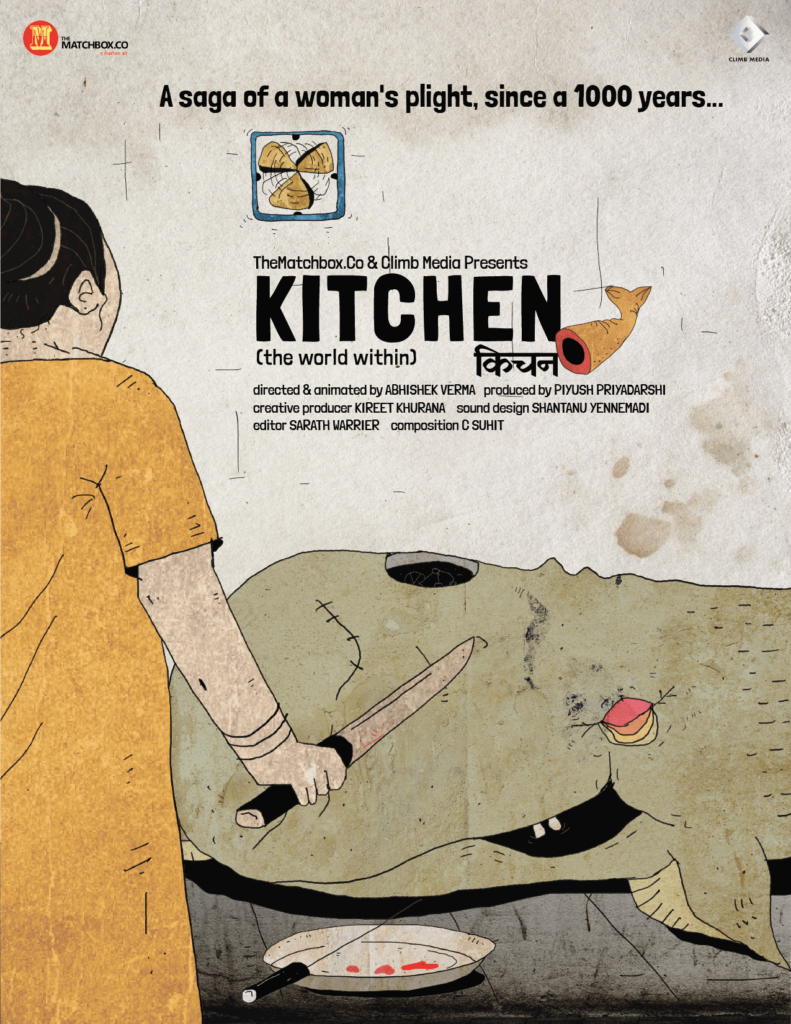
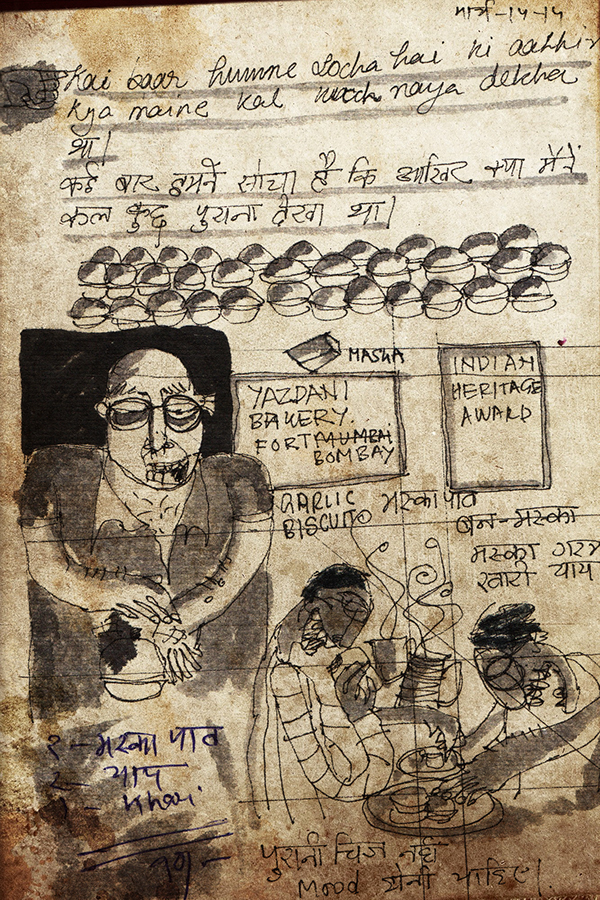
The Present
Verma’s next film Luka Chhupi about the impact of open defecation on the lives of girls and women in India in funded by the Government of India. The film is complete and in the festival circuit but remains unreleased awaiting to completion of formalities.
In the meanwhile, Verma has returned to Bombay and under the banner of his News and Animation studio The Matchbox.Co he and his partners are working on future projects including an animation series on the Indo-Chinese War for Discovery Networks.
Abhishek has two animation projects in development that we look forward to; Kitchen that looks at the central role of women in Indian households and a virtual reality film on the burning issue of manual scavenging in India titled The Manhole.



